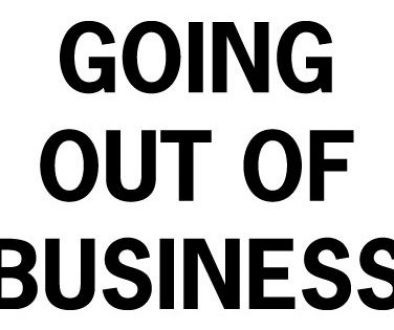Sales Secrets for Beating the Large, National, Online Resellers
As the owner of a company with two offices, lots of salespeople driving around meeting with people to develop business, and deployment and support guys out and about installing, upgrading, and fixing things, it frustrates me to no end when customers or prospects buy complex equipment online.
I pay local taxes, support local businesses, and have 40 people on my payroll that I pay twice a month, all locally! This money that I put back into the local economy helps keep other local companies in businesses, then they turn around and send that money out of state. It makes me want to yell at them for being so shortsighted!
However, it does me no good to complain or try to make our prospects feel guilty about buying from a national chain; that just makes me look like a sore loser. So, what to do?
Looking at this from the customer’s perspective, they have their reasons that they have from buying from larger, national outlets, but they tend to be misinformed about the realities of the situation:
- Reason: They think that larger resellers have better pricing, because vendors give resellers that move a lot of product better cost. Reality: Almost all vendors have moved away from volume based pricing, because then they don’t have reseller out there promoting their products. The best pricing these days goes to resellers that are able to show the customer the benefits of the vendor’s products, regardless of size.
- Reason: Big companies always have the resources to make projects a success. Reality: Time after time, I have found this to be untrue. Big companies spend a lot of money on advertising and overhead, and have strict models for how many hours of service time can be done per dollar. Furthermore, they usually fly in a team to do the install, which costs them more.
- Reason: Local companies don’t have the experience make the project successful. Reality: This one has some validity, since there are many smooth salespeople that are able to promise things their company can not deliver. The customer should take the time to call the references of any vendor they are going to do business with, which will quickly flush out the posers.
Now, once we have these reasons identified, they can then be countered by some well known sales tactics, backed up by experience and stories of woe that can be easily found.
- Identifying characteristics of our offer that are unique, and positioning them as indispensable.
- Laying traps for the competition, so that the customer is sure to ask them difficult questions.
- In a nice way, demonstrate that our company is the best, that the customer would have to be reckless to buy from anyone else, and we are actually doing them a favor by bringing our high powered resources to bear on their issues. (yes, this is hard to do, but great when it works).
A word of caution — I don’t sell commodity items, and recommend that you don’t either. Commodities can be bought from anywhere, and the prices and margins are continually eroded to the point where it is not worthwhile selling them. Commodity boxes can be sold if the distribution channel is limited enough that there is good markup, or there is a great relationship between the buyer and the sales rep so that the customer is willing to pay a higher price than necessary. Since both of these situations can disappear quickly, they are usually not a sustainable business model.
The type of product I am talking about selling requires services for design, installation, and support, what is known as a full solution. It is not onesy-twosy online type purchases that can be tossed into place with no work. In the full solution sales environment, there are definite benefits to buying local that should be explained to the customer:
- Competitive price on equipment. This is because most manufacturers have changed pricing models so that resellers that specialize in their product get the best price.
- Excellent service. As long as the reseller knows what they are doing, they are going to make sure that the customer’s project is a success, because they are going to want to use them as a reference customer. A good local reputation is very important to maintain. If there is a problem, the customer can usually talk to the local company’s owner and get things set right.
- The money stays in the community! I have to talked to many customers that complain about the economy, say they have no budget until things turn around, and then promptly send their purchases out of state because they are convinced that is the best way to buy. The only way to get the local economy going is to keep the money local.
So, take the offensive. Be sure to explain up front in the sales cycle why the customer is better off buying from a local reseller like your company. Tell stories about the unfortunate customers who were left high and dry after their project was blown up by the big, out of state vendor.
Finally, make it personal — explain to the buyer how this is really a very small industry, and if they are planning on being in it for any length of time, they really need to have solid business relationships with the local people who can do things the right way for them, care about them doing well, and are their neighbors.
By taking all these steps, you can maximize your chances to compete well against the large, out of state vendors.
Author: Rolf Versluis
Published at Priority Queue


